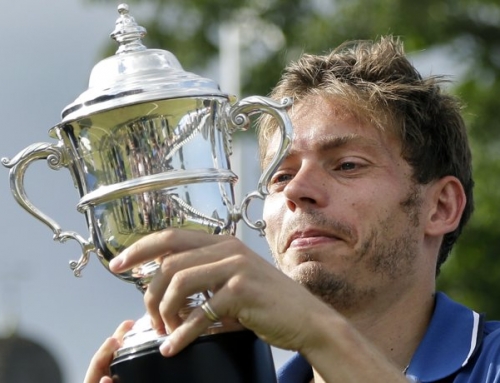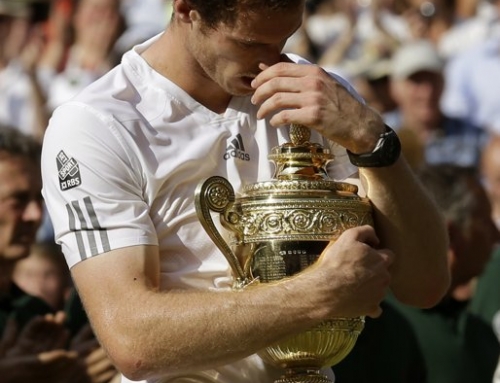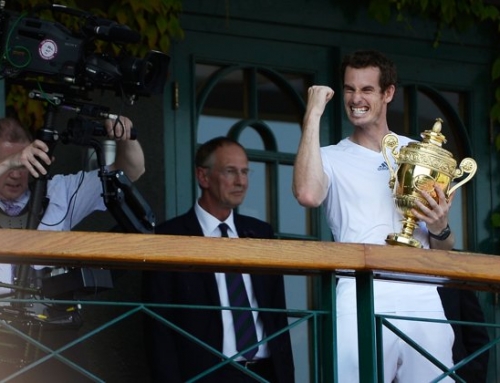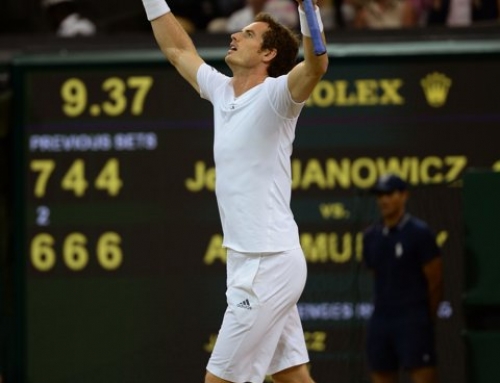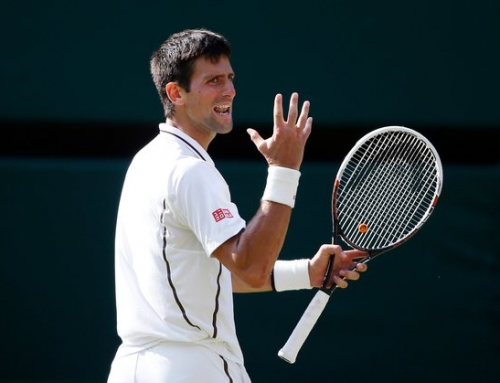 The match continued much where it had left off. Isner, who said he was delirious when he came off the court, and wondered a day after why he wanted the match to end despite Mahut looking the fresher of the two, was back to serving well. His first few serves went awry, and it seemed, briefly, that Isner might not have all the kinks out of his body. Double fault, then a fault, then a brave second serve, and it was back to the metronomic play of yesterday. Serve, hold, serve, hold.
The match continued much where it had left off. Isner, who said he was delirious when he came off the court, and wondered a day after why he wanted the match to end despite Mahut looking the fresher of the two, was back to serving well. His first few serves went awry, and it seemed, briefly, that Isner might not have all the kinks out of his body. Double fault, then a fault, then a brave second serve, and it was back to the metronomic play of yesterday. Serve, hold, serve, hold.
The biggest difference was Mahut off the ground. Mahut was flinging winners from backhand and forehand. Forced into rallying more, he also took the opportunity to get to net and cut the points off short. This turned to be his undoing.
18 games would pass before there was a whiff of hope. At 68-all, Isner was serving and got down 0-30. But the opportunity is fleeting as Isner cranks out big serves and takes the next four points. 69-68.
Then, Mahut continues to come to net. Isner reaches 15-all, and there’s a thought that even this innocuous score would spell a chance for the receiver to win. Mahut comes to net at 15-all and attempts a drop half-volley and it falls into the net, just as Isner had slipped and quietly cursed at his misfortune, but then saw the point was his. 15-30. Mahut comes to net again at 15-30 and volleys Isner’s return to the open court, 30-all.
Mahut again comes to net and Isner makes him volley then passes him, 30-40. Isner then dips a return low, and Mahut digs it out to the Isner backhand, who threads it up the line for the match.
Isner credited a change in strategy. Initially, with Mahut’s booming serve, he was left to guessing which way the ball was going, and it was leading him to miss balls. Isner finally told himself that he should just react to the direction of the ball and hope that Mahut would not find that spot in the service box that would get away from Isner. He read Mahut’s last serve, hit a low return, and that set up match point.
Isner described the post match routine which involved getting a drink, then some food initially, then an ice bath, then more food by Roddick and then a massage. Isner said he had slept only 4 hours from midnight to 4 AM when the sun rose. This was nearly 12 hours before his scheduled match. He had heard that Mahut had only slept 3 hours. The two of them could have fooled the audience who saw pep in both their steps.
Although Isner’s doubles match was canceled, in part because Querrey was also playing his singles match, and perhaps out of courtesy to Isner for winning a very long match, Mahut’s match was not canceled. He was back out on Court 18 playing with doubles partner, Arnaud Clement. Clement, it should be noted, was in the last “longest match” against fellow Frenchman, Fabrice Santoro, a match that lasted 6 hours, 33 minutes. The next three longest matches were all in the Davis Cup including a 1982 match between Wilander and McEnroe, a 1987 Davis Cup match between Becker and McEnroe, a 1989 Davis Cup match between Horst Skoff and Mats Wilander.
In retrospect, perhaps playing doubles got his mind off losing. Clement-Mahut lost the first set in a tiebreak to a British duo when, guess what, the match was called due to darkness. At least, at Wimbledon, the doubles are played best of 5, so there’s some chance for Clement-Mahut to recover and play better. Clement is still in the singles draw, but that may not last long since he faces Roger Federer next.
Mahut is probably feeling crummy too. Playing doubles also means avoiding the press who are likely to dredge up the loss. Perhaps Mahut will one day look back at this and say that he was proud to be in this match, but for now, the immediacy of the loss, the level at which he played, the decisions that lead to the break, all of it seemed a bit too painful to be civil. Mahut will likely hope that a win, even a doubles win, will cure what ails him.
Mahut has one distinction he shares with Roger Federer. Indeed, something he shares with 5 other players that are still in the draw. Mahut, Melzer, Monfils, Chardy, de Bakker, and Federer have all won junior Wimbledon.
John Isner’s victory means that he has to play more tennis. He is first up on Court 5 against Thiemo de Bakker. He is second up in doubles on Court 19 with partner Querrey and opponents Przysiezny and Dudi Sela. Isner has yet to pull out of the doubles, but given the schedule, it seems wise to do so. He may base the decision on whether he wins or loses. A win would mean he progresses further in the singles. A loss means he would only be in the doubles.
It’s a problem that Isner is probably relieved to have. No two players have struggled so mightily to win a first round match, one that had no injury timeouts (at least, of the usual massage nature) and no bathroom breaks except when given the opportunity by a supervisor.
Isner credited going back to the US for more training. He claimed he felt less than match-fit. He decided not to play Eastbourne and instead went back to Saddlebrook, and trained in the heat and humidity to get him into match shape. His coach, Craig Boynton, joked that he was now ready to play for 10 hours, and Isner had to admit, he was right. Although Isner looked worse than the ultra-fit Mahut, he still hung in there game after game, hour after hour, and recovered pretty well.
This small first round match was made epic and had all the top players abuzz. People were ignoring Nadal and Federer just to see this match. Isner said he’ll share a bond with Mahut, a guy he had not spoken 5 minutes to prior to the match, and that each time they meet, they can reflect back, even if, in the end, Isner’s memories will be a shade fonder than Mahut’s.
And give credit to Andy Roddick who shows what a big heart he has by sending food to the Isner camp and lent his masseuse.
After the incredible match, one wonders if the improbable will follow the impossible, a second round victory for John Isner. Isner has thoughts even after Wimbledon, as he heads back to Georgia to go to a tennis camp that he has lent his name to.
What stories he’ll tell when he gets there.



